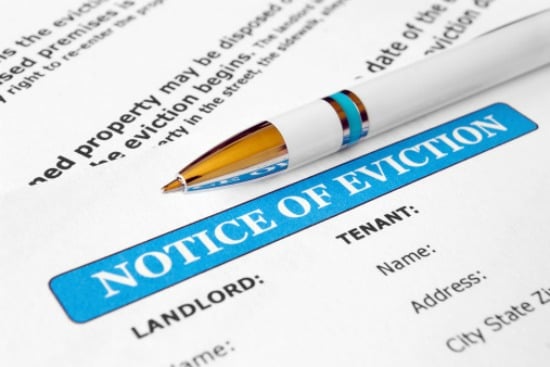Many people decide to start a career as a self-employed landlord to avoid having to work for someone else and handle unwanted tasks. however, they quickly learn that unpleasant tasks can be an everyday part of being a landlord, no matter how much experience they have in renting properties.

If that situation sounds all too familiar, you might be considering going back to your 9-to-5 so you don’t have to handle unwanted landlord tasks anymore. Don’t do that just yet – instead, keep reading to learn how you can easily manage the tasks you dislike and maintain a more profitable rental property business as a result.
Troublesome Landlord Tasks and How to Manage Them
1. Dealing with difficult tenants
If you haven’t had to deal with a difficult tenant, it’s only a matter time before you encounter one. They’ll demand your attention with constant neediness, test you by seeing how long they can get away with making late rent payments, or do something else that makes your job even more stressful.
Fortunately, there are a few strategies for handling troublesome tenants that can make the whole situation much easier on you, including:
- Training your tenants – Your tenants learn how to treat you based on what they think they can get away with, so make your rules clear and eb strict when enforcing them. You can still be sympathetic depending on the situation, but don’t let them walk all over you.
- Keeping good records – Good records of payments, policies, and conversations you have with your tenants can serve as proof and clearly describe your side of the story if and when a dispute arises with a tenant.
- Building healthy tenant/landlord relationships – While it’s tempting to avoid a difficult tenant altogether, it’s more effective to focus on building a good relationship with them. Openly communicate with your difficult tenants and you might just soften their hearts, making them a lot easier to deal with.
Of course, the best way to make dealing with troublesome tenants easier is to avoid placing them in your properties in the first place. If you you don’t already have a thorough screening process, create one and follow it each time you decide which tenants will live in your properties. Doing so will greatly increase your chances of placing high-quality tenants in your properties.
2. Dealing with property damages
If you’ve been a landlord for a while, you’re probably familiar with that sinking feeling you get when you walk into a property and see that it’s damaged. It’s never fun to see your property in worse condition than expected, regardless of whether or not the damage was intentional.
Fortunately, Howard County landlords don’t have to worry about repairing damages because Maryland law states that tenants are responsible for any damage caused by their negligence.
That being said, keep in mid that you are responsible for normal wear-and-tear in your properties, so there will be regular, unavoidable repairs that you’ll need to budget and plan for.
To decrease the likelihood of damage in your property, be sure to:
- Perform regular inspections – Walking through your property every few months will help you identify minor problems and fix them before they become costlier to repair. Just make sure you give your tenant the proper notice first. For example, in Howard County, you’ll need to provide a Notice to Enter at least 24 hours before you play to enter the property.
- Communicate with your tenants – Open communication increases the chances that your tenants will tell you when a problem with in your property arises. That way, you can address those problems quickly.
- Make your policies clear – Let your tenants know what they should report any damanges to your immediately, and make sure they understand what kinds of damages they will be held liable for.
Also, you’ll want to document any problems with a property before you rent it it out to a tenant. Have the tenant walk through the property with you before they move it, and take photos of any worn/damaged areas. That way, you can avoid misunderstandings involving the initial condition of the property later on.
3. Evicting tenants
Not only is the Maryland eviction process stressful and time-consuming – it can be costly. But keep these tips in mind, and you can make the process a bit easier on yourself:
- Keep track of all conversations – As mentioned before, you must keep good records. You’ll need them to effectively represent yourself in court and prove your case to the judge.
- Begin the eviction process promptly when necessary – Don’t hold out hoping that your tenant will suddenly get their act together. The sooner you get started, the sooner you can get the eviction process over with.
- Check in with the county clerk’s office – Don’t pester the court, but do check in to get progress reports on the case from time to time.

Tip: Check out this blog post to learn how you can get a tenant to move out without evicting them.
4. Marketing properties
When you become a landlord, you take on many different job roles. Suddenly, you’re a salesperson, a debt collector, a negotiator, a business owner, and – you guessed it – a marketer!
But marketing can be confusing, especially if you’ve never done it before. Keep these tips in mind to make marketing your properties easier and more effective:
- Include several high-quality photos in your property listings – Your potential tenants should be able to see themselves happily living in your property, and they won’t be able to do that if you merely describe your property or post a couple of low-quality photos.
- Point out notable amenities when you write your property descriptions – For example, security systems and remodeled kitchens are two features that you’ll definitely want to mention as they tend to be popular among tenants.
- Market in the right places – Free sites like Craigslist and Zillow are great for marketing, but think about your local Howard County marketing opportunities, too. For example, if your rental property is near Howard Community College, you could advertise your property in the school newspaper to attract student tenants.
Don’t forget to put a “For Rent” sign in the yard with your contact info – this tried-and-true trick still works today, and it could land you some great leads!
5. Dealing with unwanted and overwhelming responsibilities
Since owning a rental property business can be demanding, even the most seasoned landlords feel stressed from time to time. If you’re feeling the weight of unwanted responsibilities, try one of these methods to decrease your stress:
- Set boundaries with your tenants – Let tenants know that you are available during your specified business hours and to call you outside of those hours during emergencies. If you don’t, you may find yourself receiving unnecessary calls in the middle of the night.
- Keep a repair fund – Unexpected expenses are likely to arise on occasion, but you’ll feel less stressed about it if you already have money set aside.
- Outsource the tasks that stress you out the most – For example, if you are facing far too many unwanted tasks, you may want to consider hiring a Howard County property manager to help decrease your workload

Every landlord faces tough tasks from time to time, but if you work to prevent those tasks or outsource them to a trusted professional, you’ll enjoy your job much more. If you’re interested in Maryland property management to help relieve you of unwanted stress and responsibilities, contact Bay Management Group today.
